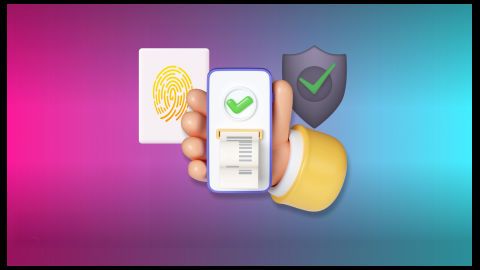With the rise of digital technologies, online fraud has become more common, making it essential to stay aware of how to protect yourself. Whether it's phishing, identity theft, or credit card fraud, knowing how to report fraud effectively can save you from financial loss. Here’s an updated guide on what you need to know about online fraud and how to take action.
What is online fraud?
Online fraud refers to criminal activities carried out using the internet, including phishing, hacking, credit card fraud, identity theft, and more. In India, online fraud cases have increased as more people use digital banking and make payments online. These scams can lead to loss of personal information, money, or both.
Common types of online fraud in India include
- Phishing: Fake emails or messages designed to steal your information.
- Vishing: Fraudulent phone calls pretending to be from a trusted source.
- Account Hacking: unauthorised access to your online accounts.
- Identity Theft: Using someone else’s personal information for fraud.
If you’ve been a victim of online fraud, follow these steps to report the issue and protect your finances.
Step 1: Call Customer Care to block your cards
Your first step is to immediately call your bank or credit card company to block your debit or credit cards. Highlight the fraudulent transactions and notify customer care so that no further damage is done. This step ensures you secure your account before proceeding with a formal complaint.
Step 2: Collect all fraud-related information
Before filing a formal complaint, gather all necessary evidence:
- Bank statements for the past six months.
- Any fraudulent SMS messages or suspicious links you clicked.
- Screenshots of malicious apps or websites.
- Your personal details like ID and address proof.
Having these documents ready will streamline the complaint process and strengthen your case.
Step 3: File a Complaint with the Cybercrime Cell (Online or Offline)
You can register a complaint with the cybercrime cell either online or offline. The Cybercrime Helpline Number has been updated to 1930, available from 9:00 a.m. to 6:00 p.m. on business days. Alternatively, file an online complaint by visiting cybercrime.gov.in.
New government initiative: reporting suspicious calls
In addition to reporting online fraud, the Indian government has launched an initiative for reporting suspicious calls that could be scams. If you receive a fraudulent or suspicious call, follow these steps:
- Visit the Sanchar Saathi Website: Go to sancharsaathi.gov.in.
- Select Chakshu Portal: Navigate to the Citizen Centric Services section and select the "Chakshu" option to report suspicious calls or activities. This platform makes it easier for citizens to protect themselves from unsolicited trading calls and other fraudulent schemes.
Step 4: Register a Cybercrime FIR at your local police station
If you're unable to access any cybercrime cell, you can also go to your nearest police station to file an FIR (First Information Report). As per Section 154 of the Code of Criminal Procedure, every police officer is required to register and record your complaint, regardless of their jurisdiction.
A few things to keep in mind
Your complaint letter should be addressed to the head of the cybercrime cell.
Personal details such as your name, contact information, and email ID must be clearly stated.
You must provide evidence of the fraud, including screenshots and supporting documents.
RBI Guidelines: If the fraud is due to third-party involvement (e.g., malware, public Wi-Fi scams), you must report the issue within 72 hours to avoid financial liability.
Inform your bank as soon as you notice fraudulent activity. The quicker you act, the less damage will be done.
If the fraud is related to financial institutions like Bajaj Finance or similar lenders, follow the same reporting procedure by notifying your bank or visiting their website for assistance.
Legal Rights and Support Available After Reporting Online Fraud
After reporting online fraud, individuals are protected by several legal rights designed to safeguard their finances, identity, and personal data. Once a complaint is lodged through the National Cyber Crime Reporting Portal or with the local police, the matter is formally recorded, giving the victim the right to receive an acknowledgement and a complaint reference number. This ensures transparency and allows the case to be tracked.
Victims have the right to request timely action from banks or financial institutions, including the temporary freezing of fraudulent transactions, reversal of unauthorised debits (where applicable), and enhanced monitoring of affected accounts. Banks are also obligated to guide customers on further preventive steps, such as changing credentials and blocking compromised instruments.
Legal support is available through law enforcement agencies, cyber crime cells, and consumer courts, depending on the nature of the fraud. In cases involving financial loss, victims can seek compensation or redressal under relevant provisions of the Information Technology Act, 2000, and the Indian Penal Code. Additionally, regulatory bodies like the RBI mandate grievance redressal mechanisms if banks fail to act promptly.
Free counselling, legal aid clinics, and helplines provide guidance on documentation, follow-ups, and escalation procedures. Collectively, these rights and support systems aim to minimise losses, ensure accountability, and restore confidence after an online fraud incident.
Key takeaways
- Updated Cybercrime Helpline Number: 1930.
- Report Suspicious Calls: Use the Chakshu Portal via Sanchar Saathi.
- File Your Complaint: Visit cybercrime.gov.in for online reporting.
#BanoCyberSmart always have your validating documents ready to substantiate your claim and protect yourself from online fraud.




